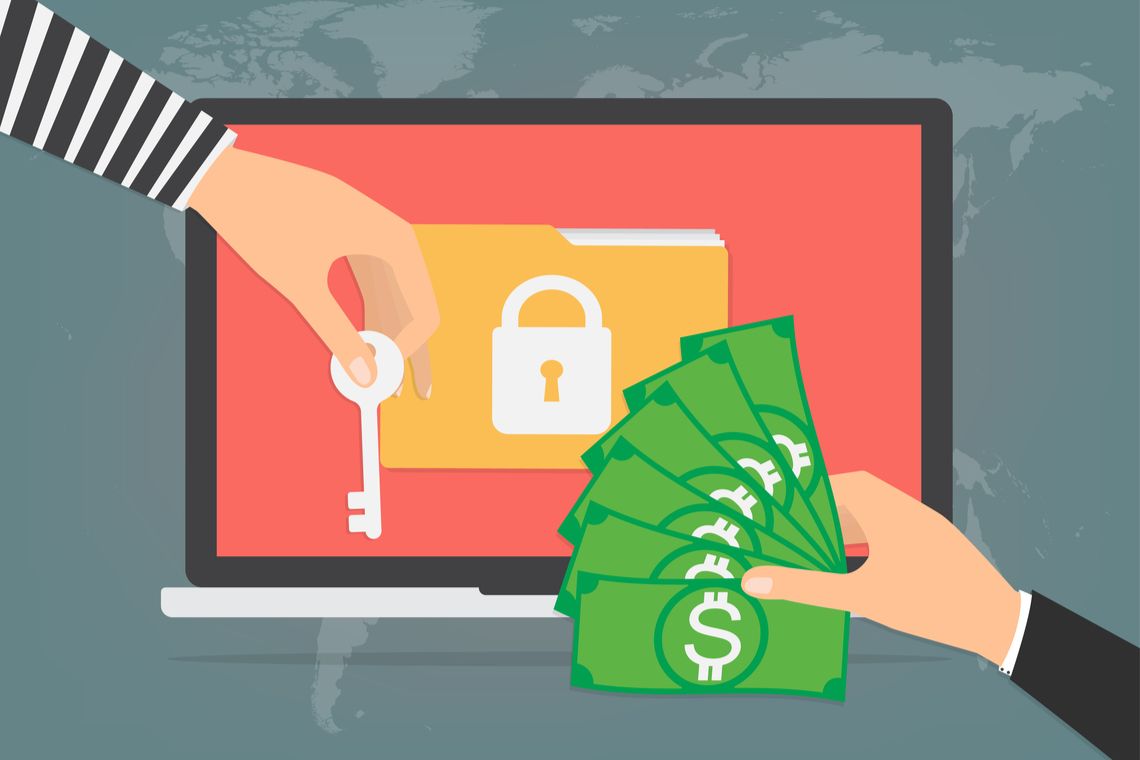According to a new report by Malwarebytes Labs, there has been a monumental increase in ransomware attacks on businesses. Bitcoin accounted for 99% of the payments paid in these attacks.
Ransomware attacks are exploding since last year, increasing up to 365%. Malwarebytes Labs said in its report that ransomware is now “dominating” cybercrime.
Bitcoin Ransomware Now One of the Top Threats for Businesses
The surprising increase has largely affected businesses. Consumers, on the other hand, only saw a 12% increase since last year. This makes sense, considering companies and institutions are far more lucrative to target. They’re also more willing to pay large sums of money in Bitcoin. The result has been an explosion few could have predicted. As Fabian Wosar, CTO of Emsisoft, told Micky recently, “a few years ago ransoms in six and seven figures were unthinkable but now they’re pretty much the norm.”’
The ransom amount demanded has also increased with the rise in attacks. The average ransom has increased 184% from Q1 to Q2 of this year alone, averaging at around $36,295 per attack. Bitcoin accounts for 99% of all ransoms demanded, reports Coveware.
However, Malwarebytes has said that the ransomware attacks are now expanding. Hackers are targeting cities, schools, small towns, hospitals, and other government buildings which have a weak digital infrastructure. For example, the recent high-profile ransomware attack on the city of Baltimore ended up costing around $18M in damages. One city in Florida decided to just give in and pay $600,000 when it was attacked around the same time Baltimore was hit.
Cybercriminals have been targetting these institutions because they can “reap serious benefits over ransoming organizations over individuals,” Malwarebytes writes.
Trade cryptocurrencies with up to a 100x multiplier on our partner exchange, BitMEX.
No End in Sight
The recent wave of ransomware attacks on cities earlier this year exposed how deeply vulnerable most digital infrastructure is, especially in the United States. The current rapid increase in ransomware attacks seems to not be stopping anytime soon, and perhaps we can expect this to become even more common as the years go on.
Building digital systems without single points of failure may be the best solution to fighting ransomware. Yet, making this kind of transition is costly and many businesses are simply not willing until they become targets themselves. So, things just may get worse before they get better.
Do you believe ransomware attacks will continue to rise? Let us know your thoughts in the comments down below.
If you are interested in margin trading cryptocurrencies with a multiplier of up to 100x on our new partner exchange with the lowest fees, follow this link to get a free StormGain account!
Images are courtesy of Shutterstock.



